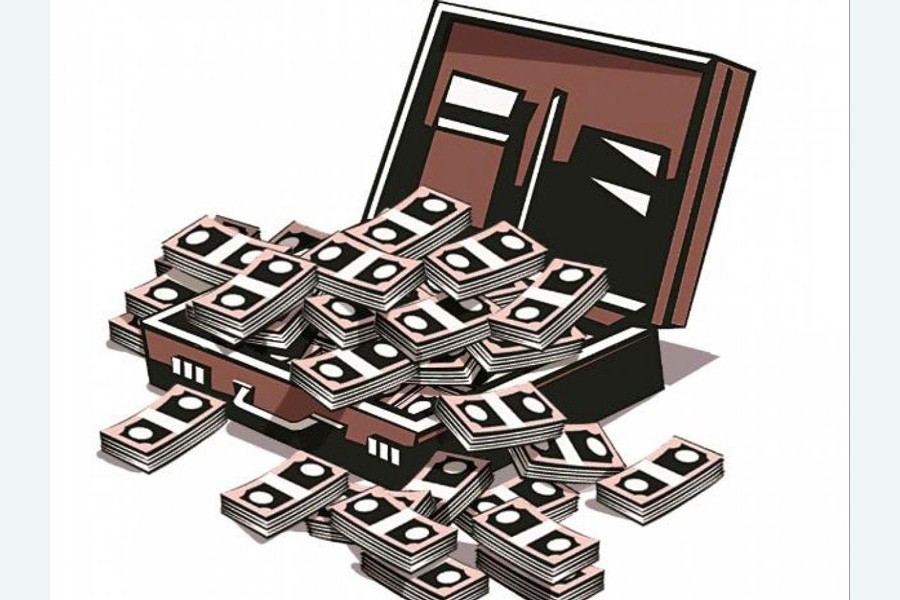
Published :
Updated :

"If you cannot say what you mean, Your Majesty, you will never mean what you say; and, a gentleman should always mean what he says," the protagonist in Bernerdo Bertolucci's 1987 movie 'The Last Emperor' is told. The young Emperor, Puyi, replies: "I am not a gentleman. I am not allowed to say what I mean. They are always telling me what to say."
Who tells a major section of today's youths to refrain from embracing gentlemanship and behave recklessly?
Narrowing life's objective down to only a job, showing ill manners of speaking publicly, presenting oneself as copycat of wanton culture, blackmailing a girl by uploading her edited photos online, getting addicted to illicit drugs and engaging in criminal activities like gang culture and rape may be a few examples of behavioural trends.
This is not what the previous century had witnessed - promising youths had emerged as the role models in anti-colonial resistance or anti-autocratic movements. In rural Bangladesh, girls of backward background used to imitate the ones of educated families so that others found them, too, as sober characters.
On the campus in the 1980s and 1990s, we saw, almost every youth had a longing for transforming him/herself into a sophisticated person. They perceived sophistication as composed personality and rich culture - more than the dictionary meaning of 'quality of having an understanding of the world and its ways and having an understanding of the way people behave'.
Many of them are now working abroad successfully, doing good business at home, practising smartly in courts, and performing in the private sector efficiently.
Men and women of the same, and also subsequent, generations are prominently active in the civil service. Their training and supposed commitment to taxpayers, nevertheless, contrast the allegations of corruption and the way some public servants reportedly humiliated a poor man in Narayanganj, the destitute owner of a goat in Bogura and an elderly man in Jashore.
What's the message the aspiring public officials would get from these serving bureaucrats: Sophisticated behaviour is no longer required?
No, they are not sole agents of Bangladesh where people have never been fond of any kakistocracy subservient to corrupt and anti-people elements. Young and experienced civil servants of patriotic zeal joined the liberation war in 1971.
It's hard to reconcile the current reality with the thoughts of German political economist Max Weber who 'gave great importance to the integrative aspects of bureaucratisation in a democratic society, such as the transfer to the entire society of the bureaucratic standards of equal treatment before the law and before authority, and the use of achievement criteria for selection and promotion' (Seymour Martin Lipset: Political Man). However, it appears to be rather a world, in the words of Weber, "filled with nothing but those little cogs, little men clinging to little jobs and striving towards bigger ones."
Hostile reactions from some officers to, for example, journalistic pursuits and rejection of sobriety by other elements as reflected in behaviour patterns may sum up the loss of popular aspirations to build a more cohesive, yet vibrant society.
Such a situation is made ostensibly to lead the 'silent' millions to taking a safe exit from 'unwanted troubles'. If each of the citizens doesn't care about common liberty and wellbeing of others, it is feared, crude elements may outnumber the virtuous ones who fight for the righteous causes.
That is yet to happen, fortunately. The arguments in favour of whitening black money or ill-gotten gains, let alone the fiscal measure itself, do not conform to the ethos the Bangladeshis had once demonstrated, during liberation struggle, and through constitutional spirit and society's pursuit of ideal education.
That's been still a legislative practice on the plea of attracting investment for higher growth. Such growth, by the way, secures higher dividends for the privileged and the powerful ones who constitute a government and its immediate beneficiaries. Thus, economic inclusion of the 'unsophisticated' masses remains a far cry.
After all, as the American journalist George Will wrote in a 2013 article in The Washington Post, "Big government inevitably drives an upward distribution of wealth to those whose wealth, confidence and sophistication enable them to manipulate government."


 For all latest news, follow The Financial Express Google News channel.
For all latest news, follow The Financial Express Google News channel.